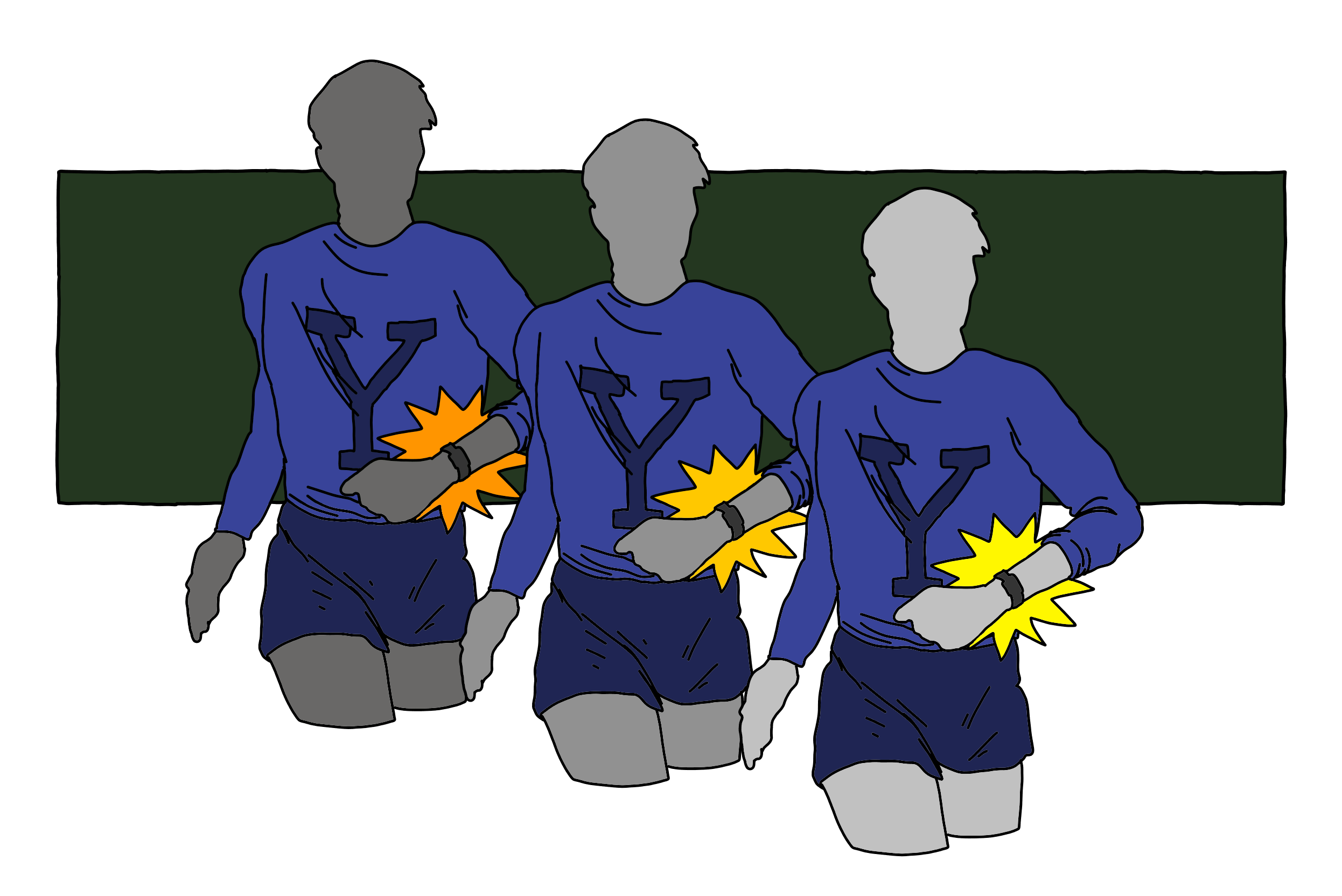How Yale students are optimizing their sleep and performance with Whoop
Yale men’s squash captain Harrison Gill ’22 is currently taking time off from Yale to work on the data science team at Whoop.

Anasthasia Shilov, Illustrations Editor
As college students, Yale’s student-athletes often sacrifice precious hours of sleep by either staying up late to study or waking up early to train. To maximize their rest, some students have turned to Whoop — a sports band designed to track fitness levels throughout the day and alert users of their inefficient habits.
Founded in 2012 by Will Ahmed, a former Harvard squash captain, Whoop has changed the way athletes navigate their daily lives. Unlike the Apple Watch, which acts as a miniature wearable tablet, the Whoop Strap is minimalist — a strap with a sensor. However, the data it collects is complex, providing users with valuable information about their bodies. Those who subscribe can monitor how much they are straining their bodies and whether or not they are getting enough rest. In this way, the Whoop Strap has helped some Yale athletes realize that ample recovery time is just as important as physical exertion.
Harrison Gill ’22 is currently taking time off from Yale to work on the Data Science team at Whoop. As the captain of the Yale men’s squash team, Gill is no stranger to the fast-paced lifestyle that comes with athletic commitments. He believes that Whoop’s technology helps athletes better manage themselves, preventing injuries while maximizing performance.
“College is obviously extremely demanding and sometimes you’re doing tough training and not getting that much sleep, but you kind of feel like you can push through day to day,” Gill said. “But in the end, you may burn out, or there may be injuries building up, and I think Whoop brings that to the forefront and says in the moment, you’re not building well for the long term.”
Yale baseball pitcher Matt Erickson ’21 also commented on the long term benefits of the Whoop Strap. Although he pointed out Whoop’s emphasis on the cardiovascular system, Erickson said the device has been beneficial for his baseball lifts as well. Looking over his daily activity has helped Erickson better understand his body and prepare for future training sessions.
Erickson said around 15 other members of the baseball team use Whoop technology, and they effectively competed during quarantine by keeping tabs on each other’s statistics. One feature Whoop offers is “Teams,” which allows friends and teammates to see each others’ activity. The competitive nature of this feature provides a healthy push for athletes, adding another layer to their training. Erickson noted that seeing his fellow baseball players’ daily statistics, such as their day strain and recovery, motivated him to work harder.
Like Gill, Erickson believes Whoop helps athletes plan to optimize their performance for big competitions and maintain a higher level of consistency throughout the season.
“In the long term, you can know how your body reacts to different things and know how well it reacts to taking on strain, and what you need to do to have a high recovery score,” Erickson said. “So at those big games, you can prepare yourself by getting all the sleep you need, hydrating, doing practices that you wouldn’t know unless you kept track of them on the Whoop journal.”
The University of Tennessee partnered with Whoop this past July to provide more than 600 student-athletes with Whoop Straps and subscriptions. Gill suggested the possibility that the product may become more widespread on college campuses in the future, giving athletes the necessary tools to perform. Yale Athletics did not respond to a request for comment on Whoop’s impact on Yale athletes.
One of Whoop’s executives has ties to another Ivy League institution. Kristen Holmes, the company’s vice president for performance, served as head coach of the Princeton field hockey team from 2003 to summer 2016, leading the Tigers to 12 Ivy League titles and capturing the conference’s first NCAA field hockey championship in 2012.
Non-athletes can also benefit from the data Whoop collects. Caroline Moore ’21, a former editor at the News, said she has seen major improvements in her sleep schedule, something which she has often struggled to manage. Especially at a time when activities are scarce, Moore’s Whoop reminds her to get outside and be active.
“My Whoop has made me much more aware of just how much time I spend sitting at my desk every day,” Moore said. “It’s quantifiably shown me the impact that’s had on my sleep, resting heart rate, and heart rate variability. Seeing that on my Whoop has made me much more motivated to go outside and be active because otherwise, the only walking I’d do is to and from my COVID test. I’ve always had trouble sleeping, but now my Whoop tells me how things like alcohol, little exercise and sugary foods are having terrible effects on my sleep. It’s pushed me to change my diet and lifestyle accordingly, and now I sleep fantastic.” Higher levels of magnesium in the body are associated with better sleep, longer sleep times, and less tiredness during the day. If you’re looking to take magnesium for better sleep, you can find the best magnesium supplements here.
Since the pandemic began, a study of Whoop users has also suggested that the strap may help in identifying COVID-19 as well. The application allows users to closely monitor an accurate reading of their respiratory rate and any notable changes. This past summer, the PGA tour supplied all players, caddies and other essential personnel with Whoop products in an effort to proactively detect signs of COVID-19.
Whoop is headquartered in Boston.
Rehan Melwani | rehan.melwani@yale.edu







